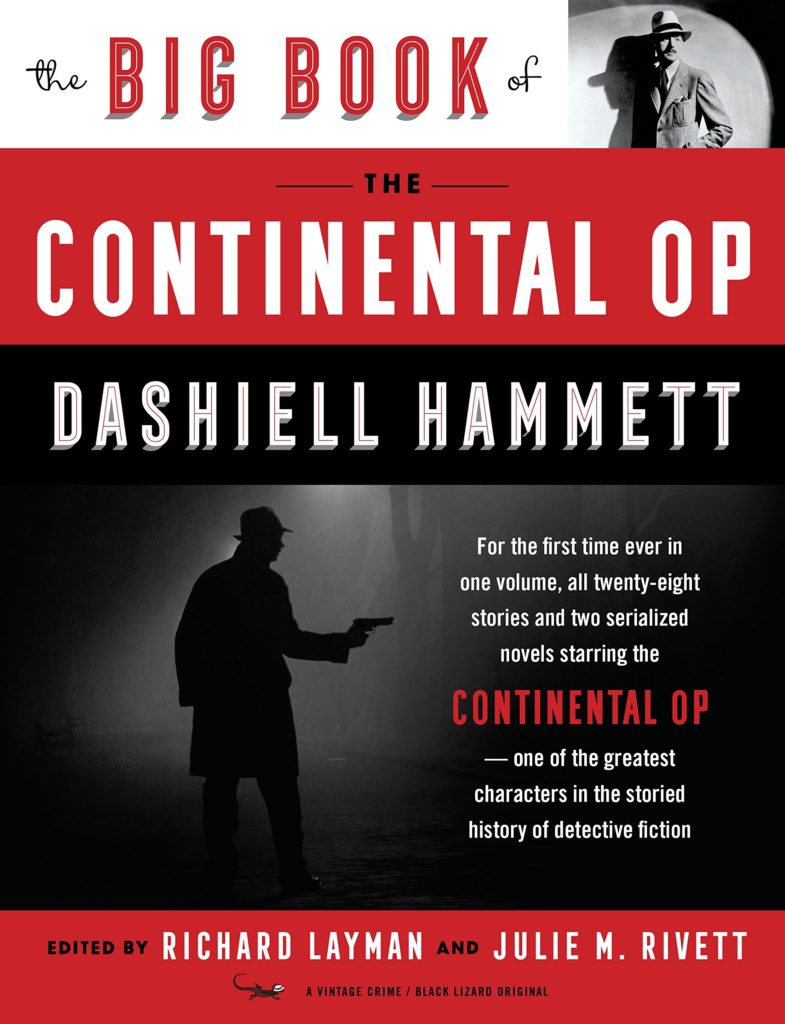Last week brought the publication of The Big Book of the Continental Op, collecting for the first time in print all of the stories featuring Dashiell Hammett’s iconic character, including the two serialized novels that eventually became Red Harvest and The Dain Curse.
Maureen Corrigan reviewed the collection in today’s Washington Post—a stellar review—and over the weekend, I got some fresh comments on an interview I did last year at SleuthSayers with one of the book’s co-editors, Julie M. Rivett, Hammett’s grand-daughter. The interview celebrated the first gathering of all these stories in ebook form, and at the time we talked about hopes and plans to have a print version down the line. So glad that those plans came through!
Here’s an excerpt from my chat with Rivett:
Art Taylor: Several collections in recent years have featured Continental Op stories, notably 1999’s Nightmare Town and then more extensively the Library of America’s Crime Stories & Other Writings in 2001, but this is the first time all of the standalone Op stories have been gathered together in series form. What might readers learn about the Op or about Hammett—and what did you yourself take away—from reading these complete case files, finally gathered in chronological order?
Julie Rivett: Any careful reader will see the progression in Hammett’s work. The stories grow longer and more fluid, the Op more emotionally vulnerable, the resolutions keyed more to justice than law. There’s evidence of both character and story development. Rick does a good job in his introductions of describing shifts in the degrees of violence that take place under Hammett’s three editors at Black Mask—very little under George W. Sutton, with scanty gunplay; much more under Philip C. Cody, the Op tempted to go blood simple; and ample well-developed action under Joseph Thompson Shaw, purposeful as well as thrilling.
I’m drawn to that biographical potential of the collection, of course. The complete run of stories offers a fascinating opportunity to contextualize the Op’s narratives within Hammett’s real life story. My grandfather starts with a novice’s attention his editors’ demands—thrilled to be published, but also intent on keeping food on the family table. He hits his stride with some great stories, but then there’s a break, when he walks away in anger, deciding to give up on fiction. Then he’s back, with stories more confident, complicated, and ambitious. He’d realized his talents and was ready (with Joseph Shaw’s support) to challenge pulp- and crime-fiction norms. And then the sea change in February of 1930—the final Op story published in Black Mask, the same month that The Maltese Falcon was released by in hardback by Knopf. With that, my grandfather was done with the Op and off to explore other possibilities.
Read the full interview here, and grab your own copy of The Big Book of the Continental Op here.
